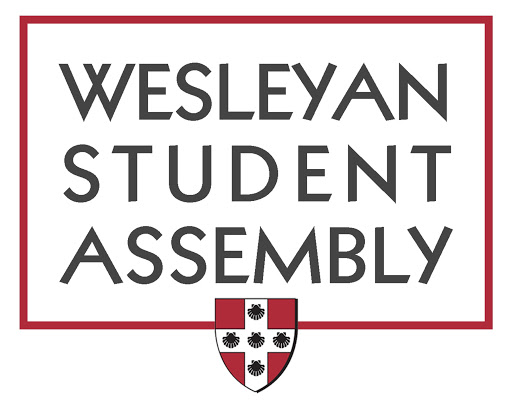
c/o wesleyan.edu
The Wesleyan Student Assembly (WSA) unanimously passed an amendment titled “The Wesleyan CommUNITY Act” on Sunday Mar. 7. The amendment was written in response to the spring sports letter published over winter break by the Student-Athlete Advisory Committee (SAAC) on their Instagram. Chair of the Academic Affairs Committee Ben Garfield ’22, Chair of the Equity and Inclusion Committee Ariana Baez ’22, Chair of the Student Life Committee Anna Nguyen ’22, Vice Chair of the Equity and Inclusion Committee Anton Lulgjuraj ’24, Senator Cypress Hubbard-Salk ‘24, Senator Elena Brennan ’24, and Senator Elizabeth Ouanemalay ‘23 sponsored the amendment.
The amendment directly addresses the backlash that resulted from the SAAC letter, as well as the tension between student athletes and non-athletes which became evident in the social media outcry following the letter’s publication. The amendment aims to build a bridge between athletes and non-athletes and establish lines of communication to prevent any future issues that may arise. The SAAC letter was a plea for intercollegiate sports to resume in the spring upon the return to campus and was signed “The Student Athletes of Wesleyan.”
Garfield is hopeful about the amendment.
“I’m optimistic.” Garfield said, “Sometimes it takes something really bad to happen in order for us to…actually do something about this.”
One of the primary causes for frustration following the publication of the SAAC letter was its signature. The membership and representation of the SAAC has been called into question in response.
“Actually, I joined SAAC as a response to this,” Student Life Committee Vice Chair and SAAC representative Nigel Hayes, ’23 said.
Emma Kiernan ’24, a member of the women’s basketball team, emphasized that the amendment is a good first step.
“It’s definitely going to be a process,” Kiernan said. “These things are not going to disappear anytime soon….I think there’s a lack of communication, or an attempt to, to talk about these things in a rational, calm setting. And, it’s totally exacerbated by the fact that we’re in COVID.”
However, not everyone expressed optimism about the amendment.
“I was skeptical of this resolution.” Vice Chair of the Community Committee Bryan Chong ’21 said. “I did think that after what had happened, some organized effort would have been ideal to stop bridging the gap—whatever this gap is.”
Chong emphasized that, while action is necessary, the most important aspect of this resolution is the effect it has on the student body and the relationship between the WSA and SAAC, as well as the Student Athlete of Color Leadership Council (SACLC).
“I hope that it’s a worthwhile bridge that has been built,” Chong said. “I think the question is, what are we going to use this bridge for?”
Hayes expressed that the amendment has potential to create change, but can be added to as necessary.
“I think the majority of students who genuinely care about these topics don’t care about what’s being written in terms of the pre-ambulatory clauses,” Hayes said. “They care about what exactly is going to happen after this is made…So what Ben and I have talked about on and on, and I’ve talked about on multiple occasions, is if the resolution doesn’t end up being as successful as we want it to we have the option of repealing it, changing it, adding something new to it.”
Hayes also acknowledged that the solution to these problems will lie not only in legislation, but also in self-reflection.
“Assumptions have a place,” Hayes said. “Be very careful about what assumptions you make, always check your own opinion and perception… Because a lot of the issues that are going on right now and that have gone on this summer—between different racial groups, different ethnic groups on campus, different political groups—a lot of assumptions are going to be made that prevent us from actually trying to [converse] and learn more about people. You can change people’s mind, you can’t change their opinions from the outset, if you don’t give yourself a chance to learn a little bit about them and allow them to learn a little bit about you.”
Molly Meyer can be reached at mkmeyer@wesleyan.edu